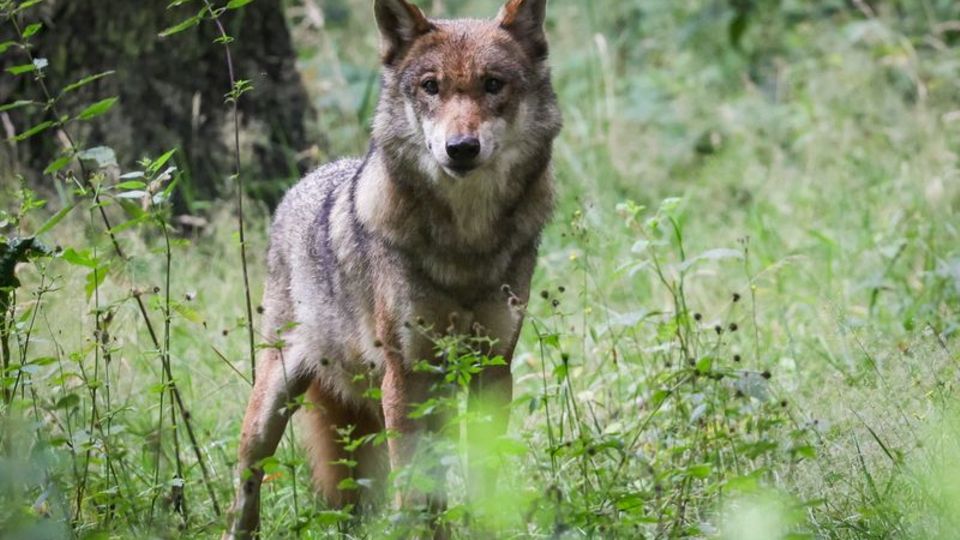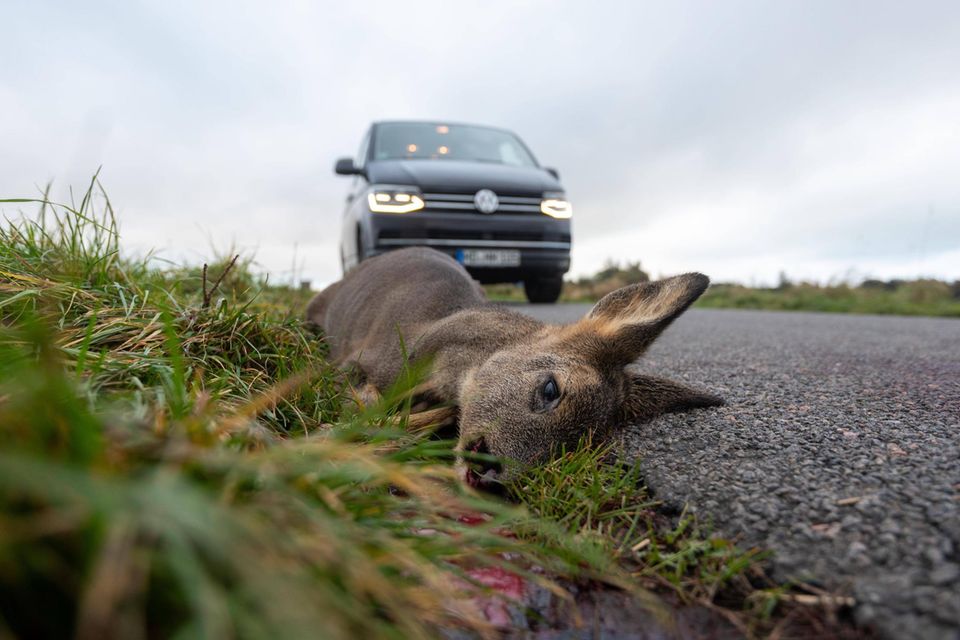Opinion
Discussion about predators
Not bad at all: Wolves can save human lives – if we let them
Wolves are the main natural enemies of deer and other game
© IMAGO/Sylvio Dittrich
Wherever wolves appear, a discussion begins about how to get rid of them as quickly as possible. The robbers are our most important allies against a growing danger.
Have you ever noticed that? You drive with that Car on a country road, and to the right and left there are dozens of deer standing in the fields, grazing happily. In broad daylight! Apparently the once shy game now doesn’t care whether they are seen or not. Deer don’t seem to have much to fear. This is surprising, because there are more and more hunters and huntresses in Germany. Meager The hunting association registered 436,000 currently, more than ever.
Why am I telling you this? If humans don’t want to fulfill their role as top predators in forests and fields, then they should at least give the deer’s most important natural enemy a free hand or mouth. But as soon as a walker in Brandenburg reported that a wolf had pounced on his dachshund, the outraged people in the country raised their verbal guns and aimed at Isegrim (that’s the name of the wolf in the fairy tale).
Wolves primarily eat deer – not sheep
And yes, there are wolves that seriously injure or kill sheep, cattle and horses, and I understand the horror and anger of shepherds and private owners who lose animals this way. But: Wolves’ food is just that over 90 percent from deerdeer and wild boars and not from farm animals, as the studies of fecal samples clearly prove.
There were 265,000 wildlife accidents in 2022, the vast majority of which were caused by deer
© IMAGO/imageBROKER/Stephan Schulz
Why I’m telling you this: Last year he reported General Association of the German Insurance Industry 265,000Wildlife accidents. In purely mathematical terms, this means a collision between a car and a wild animal every two minutes, with most wildlife accidents occurring in autumn and in the months of April and May. In 2022, insured losses amounted to a new record amount of 950 million euros, 2,600 people were injured, some seriously, and seven died. The most common such accidents are caused by deer, in the 2022/23 season alone almost 210,000, as the German Hunting Association reports. The number of often fatal collisions is particularly high in Bavaria, Baden-Württemberg and Schleswig-Holstein. In contrast to the eastern federal states, there are currently only a few wolves there. Is that a coincidence?
What should not be ignored here is that wolves also cause economic damage and human suffering, but on a completely different scale than their preferred prey. For 2022, the federal documentation and advice center on wolves registered 1,136 attacks on farm animals, mostly sheep, for which their owners received compensation payments amounting to 616,000 euros. There was also 18.4 million euros for preventive measures to protect herds from hungry wolves.
Encounters with humans are very rare
However, contrary to all claims, people in this country have nothing to fear from wolves. In contrast to deer, the predators are usually very shy unless they have been fed (as in some military training areas). The fact that there are occasional encounters between walkers – with or without dogs – is rather coincidental.
If we allowed a natural population of wolves in the country, the populations of deer (and other wild animals) could return to natural, lower levels. The lively deer would probably also be more shy if they had to fear more hunting pressure from their natural enemies. And drivers could possibly drive more calmly across the country without having to expect to collide with a wild animal every minute.




